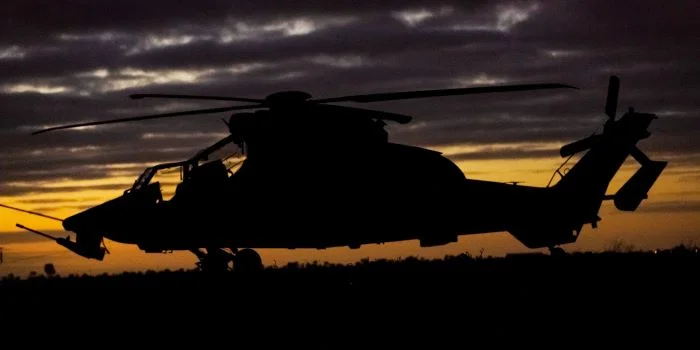The philosophical tradition in the West began with Socrates asking difficult, important, and sometimes annoying questions of those in power to explore ethical life and the nature of human society. He claimed to be a midwife of ideas—to help others in the painful process of giving birth—and to the extent that strategists are birthing strategy and creating means to achieve political ends of the State, a partner seems in order.
Introducing #StrategyAndEthics
This essay is part of the #StrategyAndEthics series, which asked a group of academics and national security professionals to provide their thoughts on the confluence of ethical considerations, the development of strategy, and the conduct of war. We hope this launches a debate that may one day shape policy.
When discussing ethics in a national security or military context, most people immediately think of the tradition of moral discourse about war, dominated by the Just War Tradition or Just War Theory. In this tradition, especially as it is taught in most civilian and professional military education largely based on the moral and legal principles first championed by Augustine and Aquinas, the only consideration of ethics in war involves either the morality of the choice to enter war in the first place or the ethical aspects of the tactical practices employed during the conflict.
What of the ethical nature of choices made at the level of strategy and/or policy? Rarely are there discussions of the morality of the lessons passed down by strategists and war theorists such as Thucydides, Realists of various stripes, Clausewitz, and more contemporary figures such as B. Liddell Hart and Colin Gray who tend to root themselves in practical considerations and historical precedent. What role do ethical considerations play in the selection of policy goals, the approaches employed to meet them, and the level of resources dedicated to the wartime effort?
To address this lack of understanding of ethics across the spectrum of war, the Ethics and Strategy series is designed to explore some of the following questions about these two traditions and the lack of intersection and discourse between them:
- Why? What are the reasons for this lack of discourse and discussion between these strains of thought?
- What are the points of intersection and common interest?
- Is there a moral obligation to have and maintain effective strategy? Why? What would be the moral grounds of such an obligation?
- What are the moral obligations that ought to contain or limit strategy? Are there any?
- What strategic considerations ought to constrain or inform moral discourse about war?
- What of the role of moral theory in strategy education and training?
- What is the role of various aspects of strategy (history, psychology, political science, military science) in the training of military ethicists and others involved in moral discourse about war
- What are future directions and considerations for dialog?
- Are certain kinds of conflict (responsibility to protect, counterterrorism, counterinsurgency) more amenable to a moral/strategic intersection? Why?
We hope you enjoy this series as much as we did working on it. If the articles generated ideas or you want to join in the conversation, put it down on paper and send it our way. Some submission guidelines to support your efforts can be found here.
Have a response or an idea for your own article? Follow the logo below, and you too can contribute to The Bridge:
Enjoy what you just read? Please help spread the word to new readers by sharing it on social media.
Header image: Wanderer above the Sea of Fog, also known as Wanderer Above the Mist, an oil painting composed in 1818 by the German Romantic artist Caspar David Friedrich (Wikimedia)
The Economics of Conventional Deterrence in Europe
#Reviewing On War and Politics: The Battlefield Inside Washington's Beltway
Exercise Hamel 2016: A Case Study in the Military Use of Social Media
This article describes how a multi-disciplinary team from the Australian Army integrated a communications plan into the design and execution of Exercise Hamel in 2016. We examine issues such as planning for public affairs and social media to be supporting elements of the exercise; workforce design; execution of a social media campaign, including tracking and adaptation; and finally, the results. Notably, this article also makes a contribution to emerging research regarding the role of new and social media as part of an integrated military public affairs strategy.
#Monday Musings: Conrad Crane
Prevent Disease to Prevent War
Chronic, non-communicable diseases such as cardiovascular disease, cancer, diabetes, asthma, and chronic respiratory disease are responsible for two-thirds of deaths worldwide each year. This staggering death toll of chronic diseases is almost as underappreciated as their security consequences. To promote international peace and security, the U.S. should combat chronic disease at home and abroad through a strategy of prevention in which civilian agencies and the military play instrumental roles.
#Reviewing A Passion for Leadership
Truly visionary leaders challenge the way things have been done. They create unique ways to provide remarkable service, take thoughtful risks, and proactively implement new ideas. They implement change and move the organization forward. While some members of the organization will embrace the change, others will not. To navigate change the leader needs the support of key subordinate leaders in the organization. He or she needs a champion at all levels with the ability to see it through.
Responding to a Sputnik Moment
#Monday Musings: Robert Scales
#Reviewing The Conduct of War, 1789-1961
To get the most out of this book you need to get past the obvious prejudice that Fuller has, undoubtedly colored by his exasperation with the leaders who muddled through World War One and those who sidelined him during World War Two. If you can do this, The Conduct of War is an excellent historical introspection into the character of war and its utility for achieving political advantage.
A Terrorist By Any Other Name
We do ourselves no good by rhetorically boxing in our responses to any sort of crime—whether motivated by a perversion of ideology or money or power. That those who perpetuate criminal enterprise use the infrastructure that powers our daily life necessitates a nuanced response to increasingly complicated criminal enterprises.
#Monday Musings: John T. Kuehn
Civil Aviation in Sub-Saharan Africa: Governance, Security, and Safety Challenges
Sub-Saharan Africa’s civil aviation industry represents a potential bright spot in a region facing several economic challenges...However, regional policymakers, airline carriers, and international aviation regulators must address numerous security, safety, and governance challenges if this potential is to be more fully realized.
#Reviewing The Evolution of Modern Grand Strategic Thought
In an impressive new book, Milevski argues that grand strategy is a conceptual nomad, an idea whose course has been driven solely by immediate historical contingency, with little theoretical grounding or guidance. Over the course of nearly two hundred years, writers on grand strategy have demonstrated a curious case of presentism in their approach to studying and refining the idea. Spurred by the necessity of solving immediate problems, grand strategy has been pushed in one direction after another, whipsawed by the emergence of new contingencies.
Targeting Clausewitzian Judgments: Fusing Precision and Accuracy to Strategy and Tactics
Just as no war can take place without an enemy, there can be no war without targets. Considering the enemy, as a whole, a target, while true, borders on tautology. Instead, we subdivide the enemy into many individual parts against which we act. However, selecting these targets requires accurate strategic vision and precise tactical acumen.
#Monday Musings: Stephen B. Slick
The War That is Not: Countering Terrorism at Home
A mission no one wanted…Bringing Bosnian War Criminals to Justice: #Reviewing The Butchers Trail
#Reviewing Allied Master Strategists
The collaboration exhibited in this British-American alliance was essential to both the Americans and British because it gave both an arena for strategic military issues to be discussed below the level of the President and Prime Minister. While this give and take discussion on issues may not rise to the level of master strategists, it definitely positively contributed to the war effort.





















